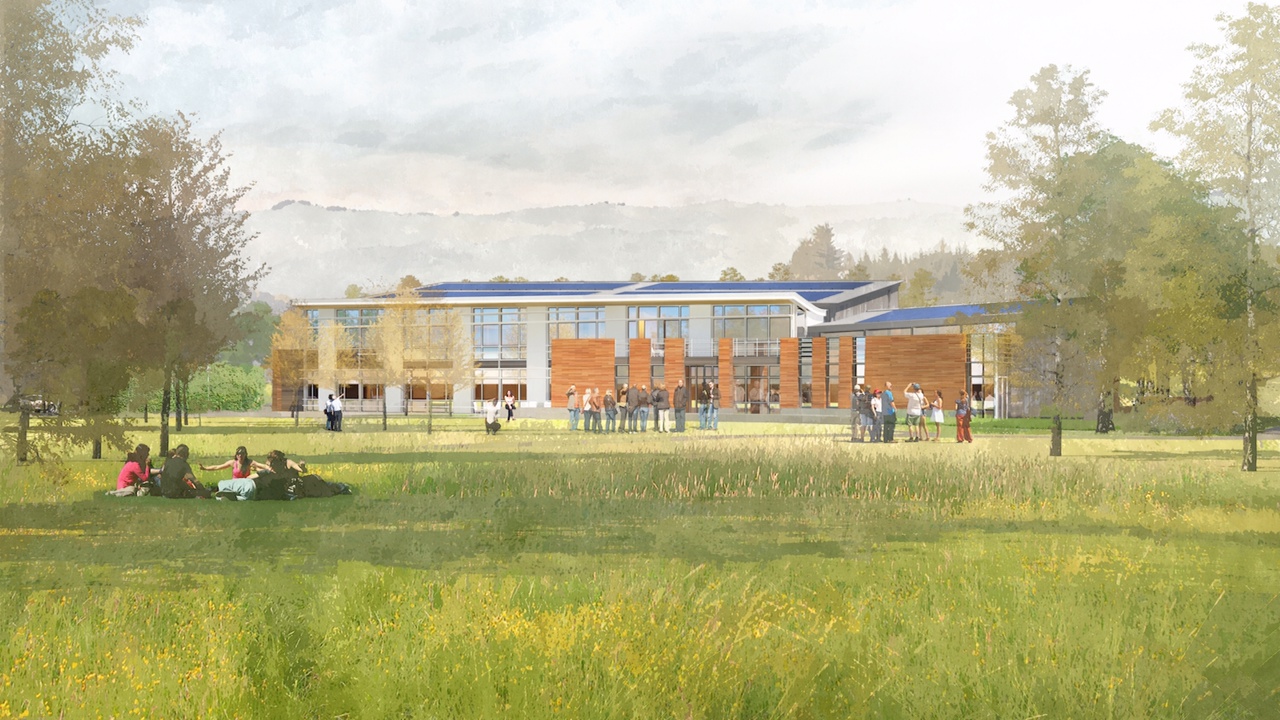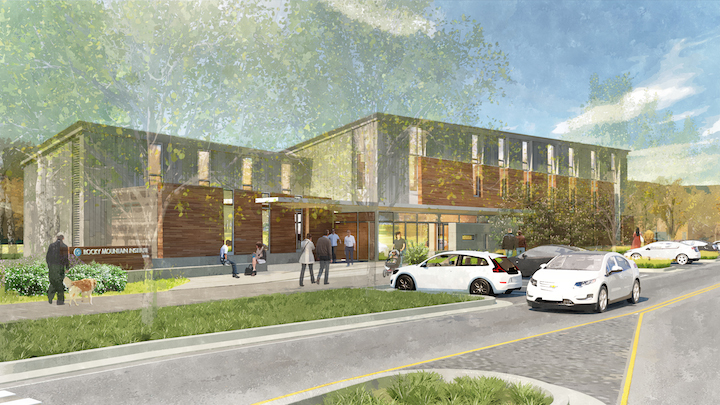Rocky Mountain Institute (RMI), with its architects, ZGF Architects LLP, and its general contractor, JE Dunn Construction, has broken ground for RMI’s new flagship building – its Innovation Center – in the Roaring Fork Valley. Encompassing RMI’s 32 years of innovation, the new 15,610 square-foot facility will exhibit the principles of integrative design and energy and resource efficiency as the organization seeks to continue its outstanding strategic collaboration in global energy.
"RMI has huge ambitions—nothing short of changing the way the world produces and consumes energy," said RMI Managing Director and General Counsel Marty Pickett. "RMI's Innovation Center in Basalt, Colorado, not far from where RMI was founded 32 years ago, will provide offices for 50 staff and offer a convening venue for collaboration with the community, industry stakeholders and global leaders."
RMI’s Innovation Center will embrace the following unique features:
-
Energy efficiency and renewable energy: With a predicted energy-use intensity of only 16 kBTU per square foot, the center will be the most efficient building in the coldest climate zone in the U.S. Including an approximately 80 kW roof-mounted solar photovoltaic system, the building will be net zero energy, producing equal-to or more energy than it uses on an annual basis.
-
Redefining Thermal comfort: The building will completely redefine how occupants experience and control their individual comfort in buildings; accomplished through passive design measures and a variety of technologies that eliminated mechanical cooling and reduced heating to a limited, distributed system.
-
Integrated Project Delivery: RMI and its building partners used an integrated project delivery (IPD) process - an emerging method of design and construction that aligns financial incentives around a truly integrative design process. As part of their multi-party agreement, a risk and reward pool ensures both cost and performance goals are met.
-
Graywater reuse system: Once Colorado legislation is finalized to allow it, RMI will have one of the first graywater reuse systems in the state. It will ensure that the building does not use any potable water for toilet flushing or landscape irrigation.
As part of RMI’s ongoing commitment to increase impact and share best practices for energy efficiency, RMI will publish updates about the successes and challenges of the project for others to learn from throughout the project’s design and completion. Approximately 90 percent of buildings in this country are similar in size to RMI’s new building (under 25,000 SF) and commercial is the largest use type. The results of RMI’s design, contracting, construction and operations process and the building’s aggressive performance are applicable to owners, occupants and investors across the U.S.
“From reinventing the design process to creating a new definition of occupant comfort, the building team has continually explored the edge of what is possible. If every commercial building in the U.S. increased its energy efficiency to this level, enough energy could be saved in one month to power New York City for an entire year,” said Kathy Berg, partner at ZGF Architects LLP.
“The partnership among JE Dunn, RMI, and ZGF Architects is a perfect blend of expertise in energy, construction, technology and design," said Mike Tilbury, project executive for JE Dunn Construction. "JE Dunn has built numerous projects throughout the U.S. that have the highest energy efficient standards. This project takes that excellence to the next level and will showcase JE Dunn's use of the latest technologies in energy efficient construction.”
Construction of RMI’s Innovation Center is estimated to take between 12-14 months and will cost $7.5 million for the building’s core and shell plus tenant finishes. This is comparable to other recently built, small, class A office spaces in the Colorado mountain region. Having raised significant funds for the building in a quiet phase, RMI will launch a public capital campaign to complete funding.
“RMI has a rich history of collaboration and innovation in the Roaring Fork Valley,” said Basalt Mayor Jacque Whitsitt. “The Town of Basalt has been an enthusiastic partner in this development project since day one. RMI’s innovation center will anchor the long-term plan to enhance the town economically and culturally.”
Related Stories
| Aug 11, 2010
Platinum Award: Reviving Oakland's Uptown Showstopper
The story of the Fox Oakland Theater is like that of so many movie palaces of the early 20th century. Built in 1928 based on a Middle Eastern-influenced design by architect Charles Peter Weeks and engineer William Peyton Day, the 3,400-seat cinema flourished until the mid-1960s, when the trend toward smaller multiplex theaters took its toll on the Fox Oakland.










